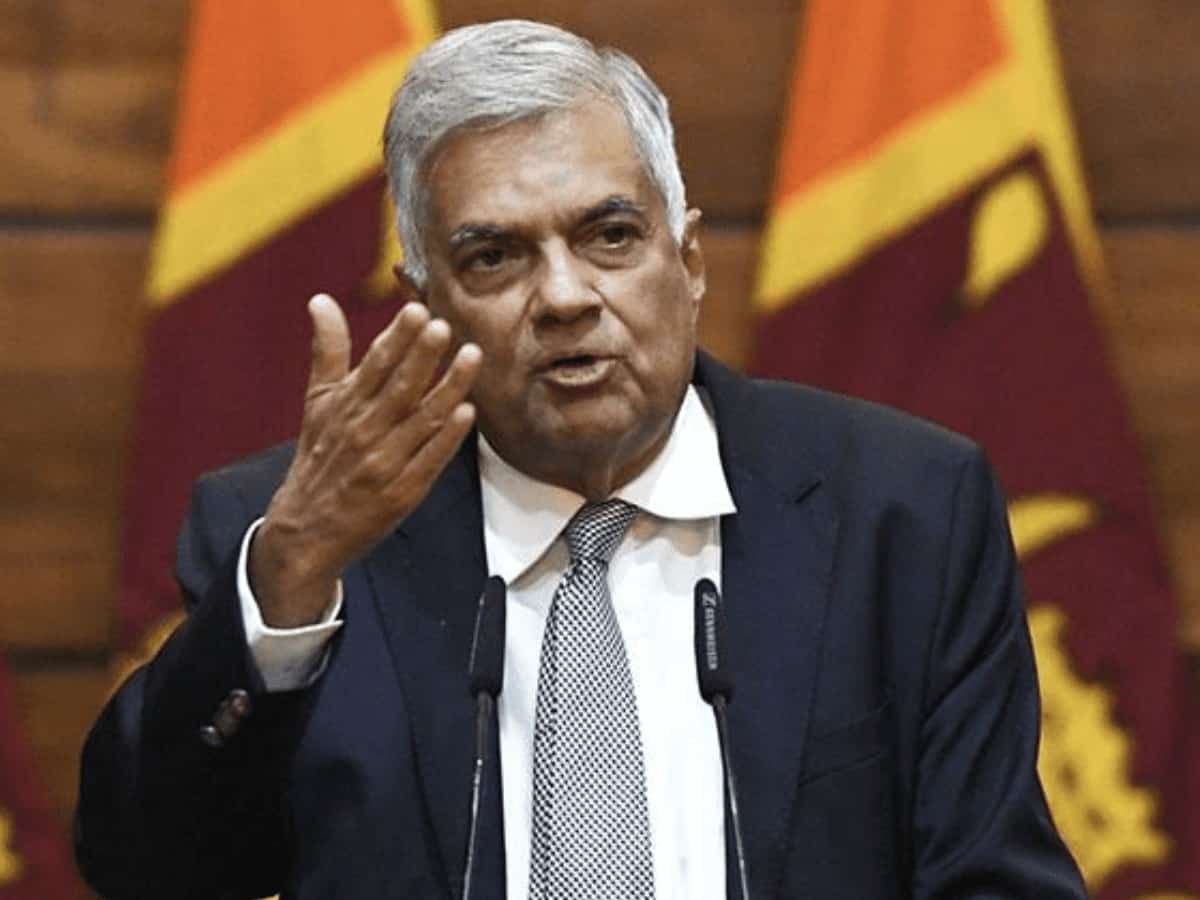
Colombo: Sri Lankan President Ranil Wickremesinghe on Wednesday said all political parties must join talks to reach a consensus on the thorny issue of ethnic reconciliation of minority Tamils in the island nation as the full implementation of 13A was crucial for the entire country.
Wickremesinghe was addressing an all-party meeting to discuss the issue, days after his visit to India and talks with Prime Minister Narendra Modi.
Before his visit to New Delhi, Wickremesinghe at a meeting with the Tamil parties represented in the north and east provinces had agreed to the full implementation of the 13th Amendment (13A) to the Sri Lankan Constitution with all-party consensus without the police powers being granted to the provinces.
The main Tamil party TNA and the main opposition Samagi Jana Balawegaya (SJB) along with most other opposition parties took part in the talks. Some parties had dubbed the meeting as a political gimmick of Wickremesinghe.
As the full implementation of 13A was crucial for the entire country, all political parties must join talks, President Wickremesinghe said.
He emphasised that talks on the 13A must not be confined only to Tamil parties.
The meeting was called by the President to brief political parties on the national reconciliation programme and the plan to develop the former conflict-battered north and east regions.
“Seven of the nine provinces are in the Sinhala majority areas. Action must be taken to address any shortcomings in the provincial council system,” he said, adding that provincial councils must be granted powers currently vested in the central government such as agriculture and tourism to conduct affairs at the grassroots level.
The central government must formulate policies while provincial councils are facilitated to carry out structured development work, Wickremesinghe said.
He said on the contentious issue of police powers to provinces, the parties must discuss and reach a consensus.
It was the task of Parliament to formulate new laws to make the provincial council system work as he, like the seven executive presidents before him, was powerless and it was only the Parliament which could do so.
The 13A was India’s pioneering move in 1987 to try and bring a settlement to the issue of political autonomy to the Tamils in Sri Lanka. It created nine provinces as devolved units with a temporary merger of the north and eastern provinces.
Prime Minister Modi during his talks with Wickremesinghe in New Delhi had expressed hope that the Sri Lankan leader would be committed to implementing the 13A and holding the provincial council elections. He urged to ensure a life of respect and dignity for the Tamils.
Sri Lanka has had a long history of failed negotiations to end the Tamil claim of discrimination by allowing some form of political autonomy.
The Tamils put forward their demand for autonomy after gaining independence from Britain in 1948, which from the mid-70s turned into a bloody armed conflict.
The Liberation Tigers of Tamil Eelam (LTTE) ran a military campaign for a separate Tamil homeland in the Northern and Eastern provinces of the island nation for nearly 30 years before its collapse in 2009 after the Sri Lankan Army killed its supreme leader Velupillai Prabhakaran.
According to Sri Lankan government figures, over 20,000 people are missing due to various conflicts, including the three-decade brutal war with Lankan Tamils in the north and east, which claimed at least 100,000 lives.



